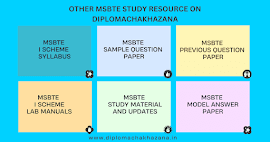Id 101
Question Which of the following operator(s) can not be overloaded
A .*
B ::
C ?:
D All of the above
Answer D
Marks 1
Unit II
Id 102
Question Which of the following is true about this pointer?
A It is passed as a hidden argument to all function calls
B It is passed as a hidden argument to all non-static function calls
C It is passed as a hidden argument to all static functions
D None of the above
Answer B
Marks 1
Unit II
Id 103
Question Predict the output of following C++ program.
#include<iostream>
using namespace std;
class Test
{private:
int x;
public:
Test(int x = 0) { this->x = x; }
void change(Test *t) { this = t; }
void print() { cout <<"x = "<<x <<endl; }
};
int main()
{
Test obj(5);
Test *ptr = new Test (10);
obj.change(ptr);
obj.print();
return 0;
}
A x = 5
B x = 10
C Compiler Error
D Runtime Error
Answer C
Marks 2
Unit II
Id 104
Question Which of the followings is/are automatically added to every class, if we do not write our
own.
A Copy Constructor
B Assignment Operator
C A constructor without any parameter
D All of the above
Answer D
Marks 2
Unit II
Id 105
Question What is the output of following program?
#include<iostream>
using namespace std;
class Point {
Point() { cout <<"Constructor called"; }
};
int main()
{
Point t1; return 0;
}
A Compiler Error
B Runtime Error
C Constructor called
D Segmentation Fault
Answer A
Marks 1
Unit II
Id 106
Question What will be the output of following program?
#include <iostream>
using namespace std;
class Test
{
public:
Test() { cout <<"Hello from Test() "; }
} a;
int main()
{
cout <<"Main Started ";
return 0;
}
A Main Started
B Main Started Hello from Test()
C Hello from Test() Main Started
D Compiler Error: Global objects are not allowed
Answer C
Marks 2
Unit II
Id 107
Question Which of the following operators are overloaded by default by the compiler?
1) Comparison Operator ( == )
2) Assignment Operator ( = )
A Both 1 and 2
B Only 1
C Only 2
D None of the two
Answer C
Marks 1
Unit II
Id 108
Question A normal C++ operator that acts in a special way on newly defined data types is called
_______
A Encapsulated
B Overloaded
C Classified
D Inherited
Answer B
Marks 1
Unit II
Id 109
Question The correct function name for overloading the addition + operator is __
A Operator _+
B Operator :+
C Operator (+)
D Operator +
Answer D
Marks 1
Unit II
Id 110
Question Which of the following operators cannot be overloaded?
A → operator
B . operator
C [ ] operator
D &operator
Answer B
Marks 1
Unit II
Id 111
Question Which of the following operators cannot be overloaded?
A +
B -
C [ ]
D ::
Answer D
Marks 1
Unit II
Id 112
Question Pick the incorrect statement from the following
A The overloaded operators follow the syntax rules of original operator.
B Only existing operators can be overloadedC Overloaded operator must have at least one operand of its class type
D Overloaded operators can change the meaning of the original operator
Answer D
Marks 1
Unit II
Id 113
Question For operators to be overloaded as non static member functions:
A Both binary and unary operators take one argument.
B Binary operators can have one argument and unary operators can not have any
C Neither binary nor unary operators can have arguments
D Binary operators can have two arguments and unary operators can have one
Answer B
Marks 1
Unit II
Id 114
Question Which of the following is an operator function?
A Member overloading
B Function overloading
C Operator overloading
D None of these
Answer C
Marks 1
Unit II
Id 115
Question Operator overloading means _______
A Giving new meaning to existing operator without changing its original
Meaning
B Making C++ operators to work with objects
C Making new types of operator
D Both a and b
Answer D
Marks 1
Unit II
Id 116
Question For overloading =+ implicitly _______
A + and = operators need to be overloaded implicitly
B Only + operator need to be overloaded implicitly
C Only = operator need to be overloaded implicitly
D The += operator cannot be overloaded implicitly
Answer D
Marks 1
Unit II
Id 117
Question Overloading a postfix increment operator by means of a member function takes-------
A No argument
B One argument
C Two arguments
D Three Arguments
Answer A
Marks 1
Unit II
Id 118
Question If you overload only prefix operator ++ then the postfix ++ operator is ______
A Does not work
B Works arbitrarily
C Works naturally
D Works as if prefix ++ operator
Answer D
Marks 1
Unit II
Id 119
Question When compiler decides binding of an overloaded member then it is called________
A Static binding
B Dynamic binding
C Local binding
D None of these
Answer A
Marks 1
Unit II
Id 120
Question One can redefine the working of _______ to work with objects.
A Preprocessor directives
B White space characters
C Standard operators
D None of these
Answer C
Marks 1
Unit II
Id 121
Question Choose the correct option:
I. When you overload <<operator the >>operator automatically gets
overloaded
II. You can overload unary operator to work with binary operatorA Only I is true
B Only II is true
C Both I and II are true
D Neither I nor II are true
Answer D
Marks 1
Unit II
Id 122
Question Choose the correct option
I.If you do not want to make use of operator overloading, you can achieve that effect
using user defined function
II. The sizeof operator can be overloaded
A Only I is true
B Only II is true
C Both I and II are true
D Neither I nor II are true
Answer A
Marks 1
Unit II
Id 123
Question The array subscript operator [] when overloaded cannot ______
A Take user defined objects are operands
B Take float as an operand
C Take multiple values inside (for example: [5,7] )
D None of these
Answer C
Marks 1
Unit II
Id 124
Question The prototype of overloaded cast operator functions do not _______
A specify the type they convert to
B specify the return type
C need to be defined inside the class whose objects are being converted
D none of these
Answer B
Marks 1
Unit II
Id 125
Question Which of the following operators cannot be overloaded ?
A +=
B <<
C ?:
D FUNCTION CALL()
Answer C
Marks 1
Unit II
Id 126
Question Which of the following operators cannot be overloaded ?
A ::
B Sizeof
C Conditional operator ?:
D All of these
Answer D
Marks 1
Unit II
Id 127
Question The overloading the function operator________.
A requires class with overloaded operators
B makes use of parameterized constructor
C allows to create objects that are syntactically like functions
D none of these
Answer A
Marks 1
Unit II
Id 128
Question Choose the incorrect statement from the following.
A Constructors can be overloaded.
B Only existing operators must be overloaded
C the overloaded operators must follow the syntax rules of the original operator
D The overloaded operators must have atleast one operand of its class type
Answer B
Marks 1
Unit II
Id 129
Question Overloading without explicit arguments to an operator function is called______.
A unary operator
B binary operator
C nested class
D none of these
Answer AMarks 1
Unit II
Id 130
Question In binary overloaded function which are overloaded through friend function take_______
A three explicit arguments
B two explicit arguments
C one explicit argument
D no argument
Answer B
Marks 1
Unit II
Id 131
Question In binary overloaded function which are overloaded through member function
take__________
A three explicit arguments
B two explicit arguments
C one explicit argument
D no argument
Answer C
Marks 1
Unit II
Id 132
Question The unary operators are overloaded by member function then it takes ______
A three explicit arguments
B two explicit arguments
C one explicit argument
D no argument
Answer D
Marks 1
Unit II
Id 133
Question Choose the correct choice.
I. All the operators in C++ can be overloaded.
II. We can change the basic meaning of operator while overloading it.
A Only I is true
B Only II is true
C Both I and II are true
D Neither I nor II are true
Answer D
Marks 1
Unit 2
Id 134
Question Which of the following operator can be overloaded through friend function ?
A ::
B +
C =
D ->
Answer B
Marks 1
Unit II
Id 135
Question The name of the operator function that overloads the / symbol is________.
A operator /()
B /op()
C / operator()
D op/()
Answer A
Marks 1
Unit II
Id 136
Question In binary operator overloaded operator function the second operand should be______.
A passed by value
B Implicit
C passed by reference
D none of these
Answer C
Marks 1
Unit II
Id 137
Question Function overloading is run time polymorphisms
A True
B False
C
D
Answer B
Marks 1
Unit II
Id 138
Question Following overloaded operator cannot be inherited by derived class_______.
A >
B =C *
D /
Answer B
Marks 1
Unit II
Id 139
Question Choose the correct choice.
A The conditional operator can be overloaded
B While overloading using the friend function the binary operator requires one argument
C Operator precedence cannot be changed
D None of these
Answer C
Marks 1
Unit II
Id 140
Question Which of the following operator can be overloaded through friend function ?
A ()
B []
C ->
D *
Answer D
Marks 1
Unit II
Id 141
Question When we overload we want to______.
A compare and copy object
B assign one object to another
C compare two objects
D test for equality
Answer B
Marks 1
Unit II
Id 142
Question Operator overloading is also called one form of polymorphism because_______.
A the overloaded operators have many forms
B the overloaded operators can be declared virtual
C the overloaded function can perform various tasks depending upon the type of object
D None of these
Answer C
Marks 1
Unit II
Id 143
Question Overloading means
A two or more methods in the same class that have same name
B calling the method which has actual parameters
C two or more methods having same name but present in different class
D none of these
Answer C
Marks 1
Unit II
Id 144
Question The inheritance mechanism provides meaning of deriving______
A new operator from exciting one
B new function from exciting one
C new class from exciting one
D all of these
Answer C
Marks 1
Unit II
Id 145
Question A class derived from the exciting class is known as______
A new class
B Inheritee
C derived class
D none of these
Answer C
Marks 1
Unit II
Id 146
Question The derived class is derived from__________
A derived class
B base class
C both a&b
D none of these
Answer B
Marks 1
Unit 2
Id 147
Question Which of the following can be derived from base class in inheritace ?
A data members
B member function
C both a&b
D none of theseAnswer C
Marks 1
Unit II
Id 148
Question The inheritance is described as a _____ relationship
A has a
B is a
C association
D none of these
Answer B
Marks 1
Unit II
Id 149
Question Which of the following allows you to create derived class that inherits properties from
more than one base class ?
A multilevel inheritance
B multiple inheritance
C single inheritance
D Hybrid inheritance
Answer B
Marks 1
Unit II
Id 150
Question The principle by which the knowledge of general category can be applied to more
specific objects is called _____
A polymorphism
B overriding
C inheritance
D none of these
Answer A
Marks 1
Unit II








0 Comments
Please feel free to comment. Being diploma students We are always ready to help diploma Students